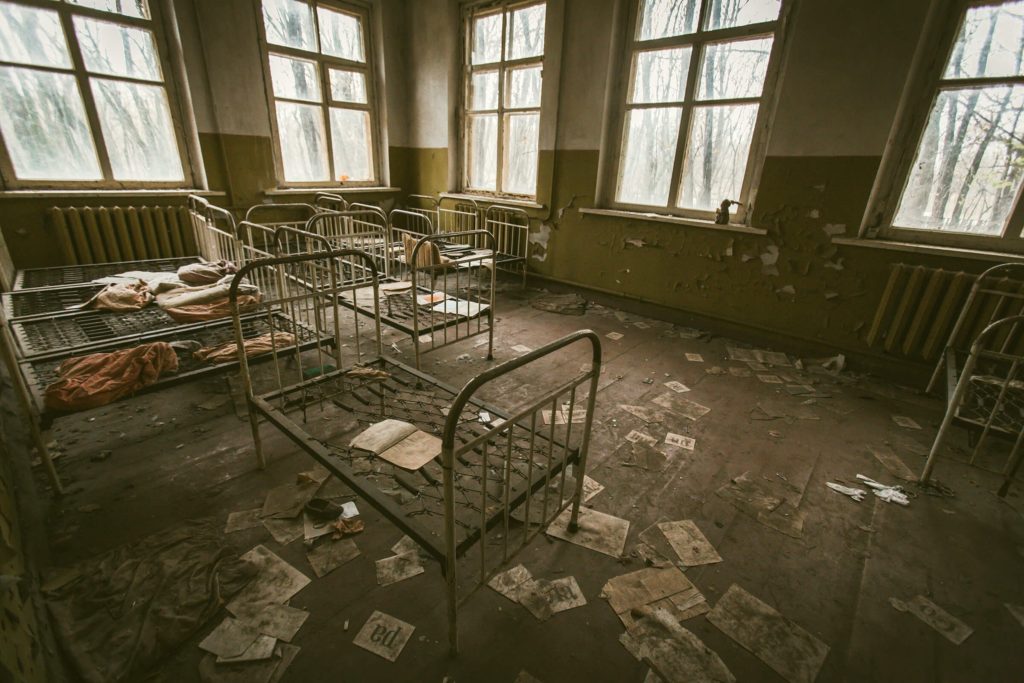
Experiences of physical abandonment are depicted in stories old and new as ways of out-picturing traumas of early relational abandonment. Jung articulated the archetypal foundation of what later psychologists came to call attachment theory. In an infant’s primal state of identification with a mothering other, lack of caregiver availability and attunement constitutes psychic abandonment. This is depicted in fairy tales like Hansel and Gretel and the more recent film, Pan’s Labyrinth. Both image of the inner world of the emotionally abandoned child: the archetypal world first comes forward to protect the abandoned child, only to become persecutory, like the witch in Hansel and Gretel. Abandonment may become internalized, manifesting as denial of one’s own feelings and needs. Getting in touch with one’s longing for a loving other, and grieving early loss is often the road to redemption.
Here’s the dream we discuss:
“I’m in a house by the sea, to see and somehow help a woman. I first meet her outside – a dark, handsome man is a few paces behind her and I take him to be her lover. She appears to be in her 30s. Later we are inside with her family – her father has invited me there. Her husband (older, pudgier and more domesticated than her lover, but seemingly intelligent and relatively attractive) and father are talking about a sailing trip. She, sitting off to the side, interjects that she’s always wanted to do a long solo voyage. Clearly this is a conversation that has happened before. Her father says it wouldn’t be safe, and her husband agrees. Either she or I (I’m unsure) comment that they are more worried about her being dangerous than they are something happening to her. At this point I/we are thinking of the lover, who the family are unaware of. The father calmly comments that there’s a large wave rising on the sea. He’s standing at a window watching it. I come to take a look – it’s huge; more tidal wave than wave. It breaks on the house and starts to wash it away. I’m holding on and realise that I’m in an untenable situation. I go back in time slightly, and this time as the wave hits I climb into a wooden box. After the water has receded I get out and try to find the family. I find the father and husband, but cannot see the woman. I’m unsure if that’s because she was swept away, or because now I am the woman.”
References
Kalsched, Donald. The Inner World of Trauma: Archetypal Defenses of the Personal Spirit.

I so appreciate this exploration of a personal experience… I think the Hansel and Grettle story, and your interpretation of it, helps us understand our addiction stories – what appears a ‘too good to be true’ solution, becomes the dystopian nightmare, taking us back to the original wound… do you think Kalshed’s book Trauma and the Soul rather than the inner world of trauma, is the one he best explores this…?
thank you again for this discussion, it felt validating and really helpful
thank you for this exploration of an issue that lies at the heart of who and why i am. this episode was validating and truly helpful, opening things up for me – thank you again. i wondered if it is Donald Kalshed’s second book – trauma and the soul – which goes deeper into the story of how the solution turns persecutor, and for me, lies at the heart of understanding my addiction story – rather than The Inner World of Trauma – an immensely helpful book that was my introduction into Jungian therapy actually, and since your programme, a book i have been delving back into – so thank you for the reminders and the support and the inspiration your programme provides.